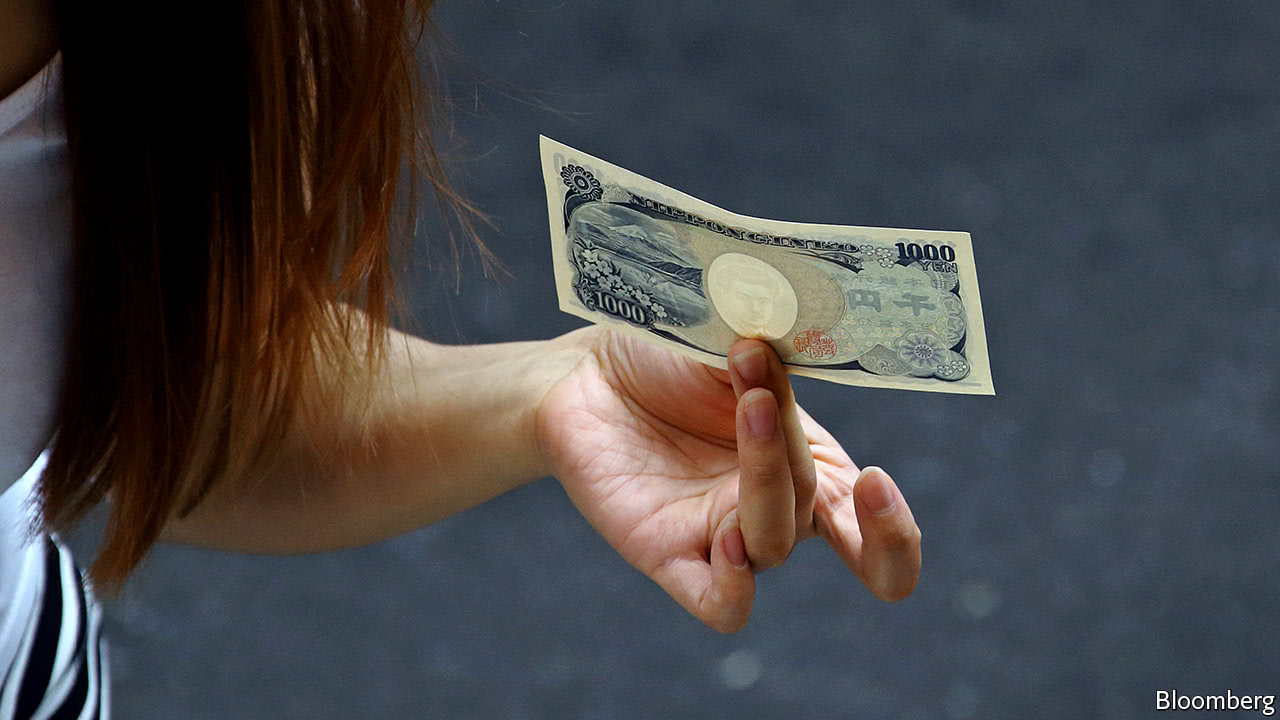
BIC CAMERA, a Japanese electronics retailer, accepts payments in so many ways that the list nearly obscures the till: credit, debit and pre-paid cards; mobile wallets; ApplePay and Alipay; and, in some stores since April, bitcoin too.
Efforts are under way to wean Japan off genkin, or cash. Handling notes and coins is expensive for businesses; many operate on tight margins because a persistent lack of inflation has inhibited price rises. The government reckons more cashless payments could help the economy, too, encouraging people, including a growing number of tourists, to spend more. (And help it collect more tax.) Entrepreneurs think the data that come with cashless methods could promote new business.
-
Jihadists continue to torment Egypt
-
Eight Catalan leaders are jailed
-
An engrossing account of the life of Karl Marx
-
The Human Library Organisation replaces pages with people
-
How astronomers identified the first visitor from another solar system
-
A lot to like and a lot to dislike in the Republican tax bill
Yet cash still dominates. Thank a preponderance of ATMs in ubiquitous konbini (convenience stores), safe cities where people are happy to carry wads of cash, and wariness about handing over personal data. Last year cash accounted for 62% of consumer transactions by value, according to Euromonitor, a market-research firm. That is down from 65% in 2015, but compares with just 22% in Britain, 34% in America, 10% in South Korea and 50% in China.
Of the other methods, pre-paid cards are increasingly popular. They covered 12% more transactions by value in 2016 than the year before, despite mainly being used for payments under ¥3,000 ($26). Retailers small and large, such as Rakuten, a giant of e-commerce, have launched their own cards. Transport companies’ cards are widely used, too.
Tsuneharu Miyake, head of financial research at Mizuho Research Institute, argues that this proliferation of plastic can in large part be attributed to companies wanting to keep their customers. Most cards offer bonus schemes. But because they cannot be used in every outlet, this trend means the slow shift from cash has not brought the convenience and lower costs that were hoped for. Ryosuke Izumida, author of a book on the future of banking, says it is a “real hassle” for businesses to have to fork out for hardware for each system or risk losing customers. Consumers may benefit from this competition for their custom. But there are drawbacks for them, too. Some complain that their favoured card is not accepted universally and, says Mr Miyake, the cost of installing multiple devices is passed on to them.
Meanwhile many businesses still refuse credit cards. That is a problem for tourists—and for the 2020 Olympics in Tokyo. In McDonald’s fast-food outlets in Japan, for example, 13 different pre-paid cards are accepted, but not Visa or MasterCard. (It is planning to change that this winter.)
The fragmentation of the payments market may get worse as Japan continues to move away from cash. Companies outside the financial sector, such as social-media apps, may launch payment arms, as Tencent’s WeChat has done in China. Foreign companies are coming in, too. Some shops accept Alipay, a Chinese e-payment system that can be used by a retailer who simply downloads an app. Reports suggest it will launch a Japanese version next year.
Banks, fearful of losing out to newcomers, are also working on e-payments. A consortium (including Mr Miyake’s parent company, Mizuho Financial Group) is developing JCoin, a digital currency. It hopes to have the scale needed to squeeze others out. If the government is to fulfil its aim of doubling cashless payments in the next decade, it may have to regulate to curb the use of cash. Back in Bic Camera, that goal seems a long way off, as customers rifle through their purses and wallets for hard-copy yen.
Source: economist
In Japan, the move from cash to plastic goes slowly